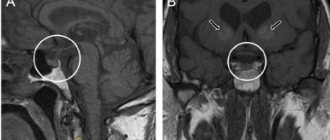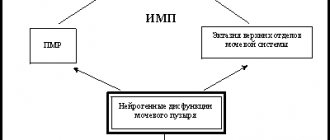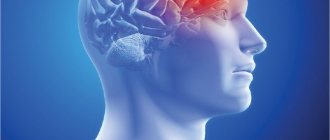Norms and benefits of sleep
Adequate sleep is a relative concept. Traditionally it is believed that the normal duration of night rest is 8-9 hours. But there are people who feel great with 4-5 hours of sleep a day and even with a three-hour rest. Therefore, you need to focus only on your feelings and the needs of the body. If you want to sleep at least 12 hours, it means:
- This is the rhythm that suits a particular person;
- You shouldn’t fit yourself into the generally accepted framework.
Somnologists deal with issues of periodic lack of sleep and chronic lack of sleep. They:
- determine the cause of the problem;
- her character;
- developing effective treatment.
First of all, somnologists strongly recommend that you pay attention to sleep disorders. Because during the period of night rest, very important processes occur in the body:
- active production of serotonin, which is responsible for growth and development;
- strengthening the immune system;
- renewal of tissues and cells;
- restoration of mental functions.
Subsequently, it is impossible to artificially compensate for the lack of sleep.
What does daytime sleepiness mean?
Lack of sleep
The most common cause of daytime sleepiness is a lack of sleep at night, or simply lack of sleep. Moreover, you can not get enough sleep not only because of night work or a fun party, but also because of various diseases that interfere with sleep. Such diseases include restless legs syndrome (manifested by an irresistible desire to move the legs in the first half of the night), sleep apnea syndrome (breathing stops during sleep), nightmares, sleepwalking, itching of various origins, chronic pain and many other diseases. In these cases, daytime sleepiness is only a consequence of night sleep disturbances.
Daytime sleepiness as a symptom of illness
A completely different situation arises if the night's sleep is sufficient for rest (on average 8–10 hours), but during the day you still want to sleep. This condition is called hypersomnia. In these cases, in addition to attacks of daytime sleepiness, lethargy, a feeling of fatigue even after a long sleep, and decreased concentration may be a concern. Patients with hypersomnia find it difficult to wake up; after awakening, they remain lethargic, which does not immediately go away (this condition is called “sleep intoxication”). Very often the duration of night sleep increases to 12–14 hours.
The causes of this condition may be diabetes mellitus, thyroid disease, liver cirrhosis, kidney failure, mental disorders (for example, depression), taking certain medications (for example, antiallergic drugs, antidepressants), as well as injuries and diseases of the nervous system (brain tumors, degenerative diseases, etc.).
Lack of sleep and its causes
Lack of time tops the list of reasons. Of course, modern man is in a hurry and does not have time to do anything. As a result, even in the evening he cannot relax, trying to:
- do the work taken home;
- watch movies;
- scroll through social networks and more.
As a result, the correct rhythm gets lost and a person begins to fall asleep only late at night - at 2-3 o’clock. The negative consequences of such a schedule will not be long in coming.
Somnologists note that another cause of insomnia is an incorrect approach to organizing sleep. To fall asleep quickly and deeply, you need to:
- 2-3 hours before, turn off the TV, put aside smartphones;
- ventilate the room;
- first turn off the bright lights, leaving 1 night light or source of diffused light;
- lower the blackout curtains.
Doctors also recommend removing any flashing light sources from the bedroom.
Of course, the factors listed are not the only ones on the list of reasons that have a negative impact on falling asleep. This also includes:
- stress;
- anxiety syndrome;
- nervous disorders;
- pregnancy;
- depression.
As a result, lack of sleep becomes chronic.
Symptoms
Lack of night rest manifests itself in different ways. For some young people, it is not noticeable at all - they spend nights without sleep, and go to school or work in the morning. And at the same time they feel great.
But somnologists say that this feeling is deceptive. A young body has great resources to recover as quickly as possible. And until a certain time, violations do not make themselves felt. But you shouldn’t relax - against the background of chronic lack of sleep, any strong stress can be decisive. And as a result, all the accumulated fatigue will manifest itself in one moment.
Lack of sleep clearly manifests itself at the following levels:
- physical;
- mental.
The first group of symptoms includes the following:
- increased pallor;
- pronounced circles under the eyes;
- headaches, including migraines;
- dizziness;
- redness of the whites of the eyes;
- nausea (sometimes the symptom is accompanied by a strong urge to vomit);
- high blood pressure;
- high body temperature.
But along with the listed symptoms, other signs may be present:
- irritability;
- short-term loss from reality;
- anxiety;
- reduced productivity;
- tendency to procrastination;
- anxiety;
- despondency and tendency to become depressed;
- slow reactions;
- inability to think correctly;
- problems with decision making.
To summarize, it should be noted that sleep disturbances resemble a flu-like condition - a malaise that manifests itself in various areas and reduces the quality of life.
What to do for headaches, dizziness and weakness
In some cases, headache, dizziness, nausea and weakness are one-time symptoms that arise as a result of the influence of certain factors on the human body. For example, overheating, unpleasant odor, stuffiness, vitamin deficiency, low hemoglobin, changes in blood pressure, during pregnancy, etc. However, if these symptoms are repeated with a certain frequency again and again, and it is not possible to find out the reasons why the head is dizzy and hurts , then you should take your health seriously. By contacting our Spinal Health Center, you can undergo a free diagnosis and the opportunity to get rid of dizziness and headaches forever by eliminating the causes that cause them.
Why do severe headaches and dizziness occur?
Many people do not correlate spinal diseases with headaches. In most cases, there is one reason for headaches, dizziness, and nausea - pinched nerves in the vertebrae and poor circulation. This is why blood pressure changes and many other causes of headaches, dizziness, and nausea arise. To correct the situation, it is enough to straighten the upper cervical vertebra, after which the body will gradually begin to restore the correct position of the ridge. This is exactly what we do in our clinic.
It is worth noting that displacement of the Atlas - the first cervical vertebra - is observed in most people. This happens due to many factors. Very often it occurs during the birth of a child, when a very large load is placed on the neck. In other cases, displacement can be caused by injuries and aggravated by sedentary work, an inactive lifestyle, lifting heavy loads, etc. This leads to frequent headaches and dizziness, pain in the neck, shoulders, back, lower back and other symptoms. , different for different people. If you experience the following symptoms: blurred vision, headache, nausea, constant lethargy and disorientation, contact us, because the possible cause of these problems is the spine.
You can trust us!
The technique used in our clinic to get rid of frequent dizziness and headaches is not medical, but its effectiveness is recognized in many countries around the world and is licensed. In addition, it is completely safe and comfortable for the patient. Atlasprofilax was used in Switzerland in the middle of the last century and has proven its effectiveness over many years. Reduction of the upper cervical vertebra today occurs with the help of a special device, so there is no human factor that can cause harm to the patient. In addition, the effect is not on the vertebra itself directly, but on the muscles that surround it. It is also important that it is enough to undergo just one procedure so that in the future, by performing simple physical exercises, you will help your spine regain its former physiological state and strengthen the muscle corset.
Despite the fact that the Atlasprofilax method is not medical, our entire staff consists of qualified medical professionals. They will be able to diagnose your body at the highest level and determine whether the method will help in your case, which will lead to relief from unpleasant symptoms.
We have helped hundreds of patients who could not find the causes of their problems and get rid of the fact that they were constantly dizzy and had pain in the back of their heads. Don't give up either! Come for a free consultation and we will tell you how not only to remove these symptoms, but to eradicate the cause of their appearance forever.
Remember: you cannot turn a blind eye to pain and illness, as this can lead to serious consequences.
Sign up for a free consultation
Lack of sleep and its main consequences
Chronic lack of sleep has complex effects on the body. Moreover, somnologists claim that even a one-time lack of sleep will have a negative result. It will take several weeks for the body to compensate for the lack of periodic night rest.
The negative effects of insomnia can be divided into 3 groups:
- are common;
- for men;
- for women.
Doctors include the following in their list of general consequences of lack of sleep:
- decreased production of cytokine protein - it promotes rapid recovery in case of viral infection;
- difficulties with communication - against the background of chronic lack of sleep, a person becomes dull, lethargic and prone to loneliness;
- the risk of developing diabetes - regardless of the cause of insomnia, it stimulates increased glucose production, which in 90% of cases leads to diabetes;
- problems at work - an employee who is constantly sleep-deprived will not be able to move up the career ladder and will be in bad standing with his superiors;
- deterioration of relationships in a couple - lack of night rest causes a decrease in libido, which means intimate intimacy will become an unprecedented rarity.
Depression is one of the most common consequences of lack of sleep. And if initially it manifests itself as mild dissatisfaction with life, then as the lack of sleep becomes chronic, the depression becomes more severe. In other words, in the absence of proper treatment, it can lead to suicide.
Lack of sleep and its main consequences for women
In the fair half of humanity, the lack of night rest manifests itself almost immediately. For example, even 1-2 nights without proper rest have negative results for appearance. And if the problem is chronic, the manifestations will be harsher and brighter.
First of all, lack of sleep causes deterioration in appearance:
- swelling;
- bags under the eyes;
- the appearance of cyanosis of the skin;
- dullness of skin and hair;
- brittle nails;
- the appearance of wrinkles;
- hair loss.
At the same time, the list of consequences includes:
- hormonal disbalance;
- excess weight;
- premature aging;
- disruptions of the menstrual cycle.
In general, chronic lack of sleep reduces a woman's attractiveness. She stops looking after herself, smiling and has little interest in others. Therefore, being next to such a lady is not very pleasant. As a result, the relationship may not withstand such a test.
Lack of sleep and its key consequences for men
The consequences of lack of sleep in the stronger half of humanity appear after some time. Men who play sports react especially acutely to insomnia - they:
- feel lethargic;
- forced to reduce physical activity;
- can't build muscle mass.
Due to chronic lack of sleep, athletes lose weight and are unable to train productively.
But at the same time, lack of rest at night clearly manifests itself as:
- general depression;
- hormonal disruptions;
- periodic outbursts of aggression;
- decreased mental abilities.
Separately, it is necessary to note the ability of men to procreate. If the problem is chronic, sperm activity is significantly reduced. As a result, conceiving a child will be more difficult, and in some cases even impossible. At the same time, you need to understand that the ability of men in the reproductive segment to be restored is long and difficult.
How to get a good night's sleep: expert advice
Sleep doctors know very well where lack of sleep leads. Therefore, in case of regular disruptions in sleep and wakefulness, you should not hope for a lucky break. To prevent negative consequences from causing serious damage to the body, you must immediately contact a specialist and begin treatment.
But here patients may face a serious problem - somnologist is not a common specialty. There are no such departments in universities. As a result, doctors often have to retrain as somnologists, often faced with a lack of night rest. But their acute shortage in Russian cities is clearly visible. Not every locality has specialized medical centers with experienced doctors.
Residents of Rostov-on-Don will not have to look for a long time for a specialist in chronic sleep deprivation. Firstly, the “South Blade” regularly sees a somnologist with extensive experience in:
- diagnosis of sleep disorders;
- correction of this problem.
Secondly, at the medical center the patient will receive comprehensive care. And he will be able to get rid of chronic lack of sleep, including its consequences.
Which doctors should I contact if I have constant weakness and frequent dizziness?
Friends, expert in the “What kind of doctor do I need?” column. continues to answer your questions.
In this section, you can describe your symptoms to your doctor and get advice on which specialist you should contact.
To get a useful answer you need:
briefly outline the main symptoms;
make the question as specific as possible;
write a question in the comments to this column.
Question: Good afternoon! My left knee hurts, it is difficult to bend my leg, there is no swelling. on the inner lateral surface there are periodic sharp, pulling pains, as if caught with a fishing hook and pulled upward. Feels like a tendon or ligament, but not a bone. Now similar symptoms have begun to appear in the right leg, but not in such an acute form. I don’t know who to turn to, a surgeon or an orthopedist. Thank you!
First of all, you need to be examined by an orthopedic traumatologist. An examination will probably be prescribed - MRI and/or ultrasound of the knee joint. If the traumatologist doesn’t see anything “out of the ordinary” after the examination, he will send you to a neurologist.
Symptoms can indicate both damage to the ligamentous apparatus of the knee joint and neurological problems. An in-person examination is required.
___________________________________________________
Question: Good afternoon. Please tell me which doctor to contact. Frequent dizziness (in the forehead area), tinnitus, and occasionally low blood pressure.
Dizziness in the forehead area? Unusual! Make an appointment with a neurologist. He will tell you what examinations you need to undergo - MRI of the brain and cervical spine, MSCT of the brain, ultrasound of the vessels of the head and neck, fundus examination, etc.
Only a doctor during an examination can decide what exactly you need.
Low blood pressure and dizziness can occur if you move little, sit in front of a computer all day and don't drink enough fluids. In such cases, joint exercises and correction of the drinking regime help.
But you need to start with a consultation with a neurologist to rule out pathology that requires therapy.
____________________________________________________
Question: Hello. Tell me who to contact. I feel constant weakness, lack of strength, lack of mood. Even after rest and sleep, strength does not increase. That is, I get up tired in the morning, although I sleep about 8 hours every day. Hemoglobin is normal, I thought about it, because physically it is very difficult to do anything, dizziness immediately begins. Everything is complicated by the fact that I have a tumor in my brain, neurosurgeons say it’s an astrocytoma, not dangerous, you just need to observe, but the neurologist won’t even allow me to take a course of vitamins, because... they can cause tumor growth. Tell me who to contact or what additional tests to take.
The fact that you do not have a dangerous formation in the brain does not mean that you only need a neurosurgeon and no one else for observation. Of course, you need to undergo the necessary examinations to monitor the situation - once every six months or once a year - as prescribed by your doctor.
In addition, I recommend that you contact a therapist and undergo a full examination - a general blood test, biochemistry, fluorography of the lungs, ultrasound of internal organs, and anything else that the therapist deems necessary.
If everything is in order, you need to consult a psychotherapist. This is how hidden depression can manifest itself. Perhaps this is how you react to being diagnosed with an astrocytoma. In this case, it will be useful, in addition to treatment with a psychotherapist, to engage in some oriental sports - yoga, qigong.
Elena Bobyak
Photo depositphotos.com
The author's opinion may not coincide with the opinion of the editors.










